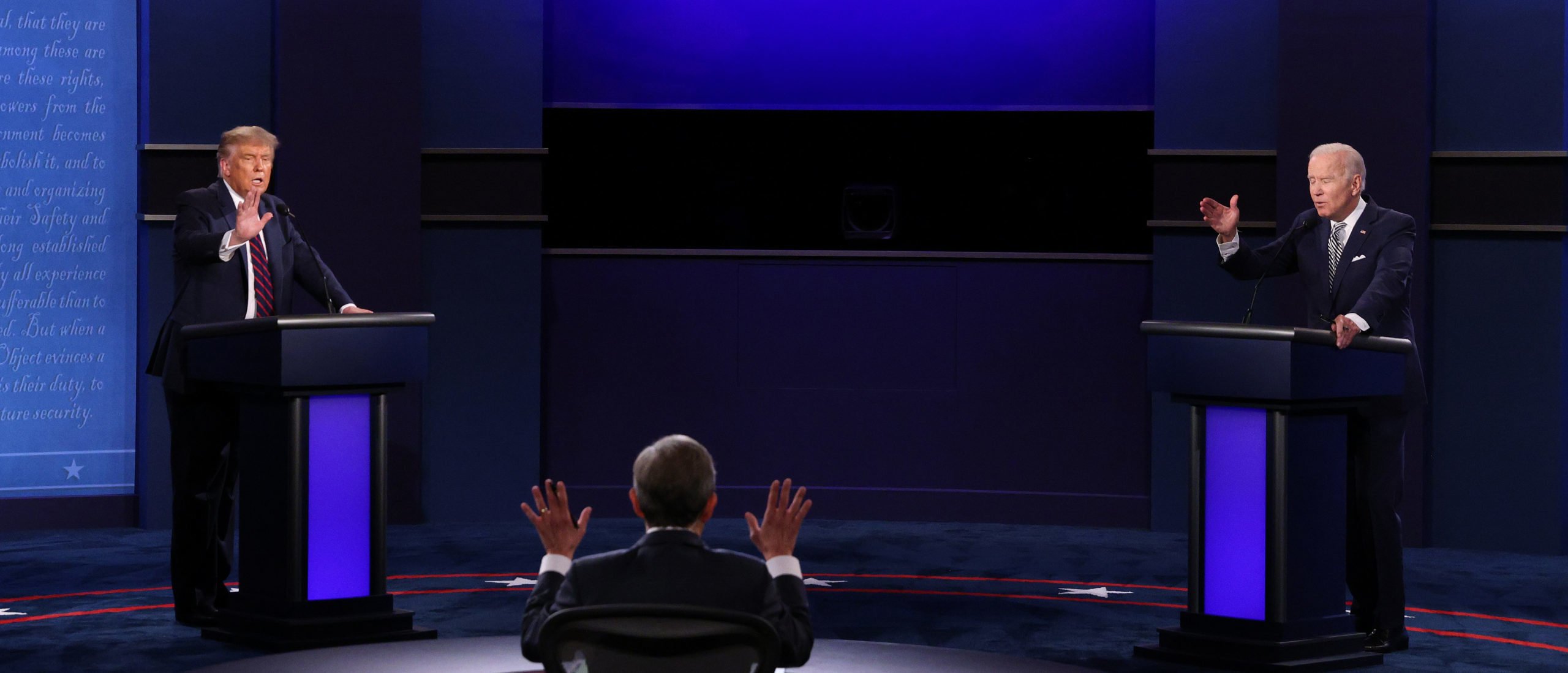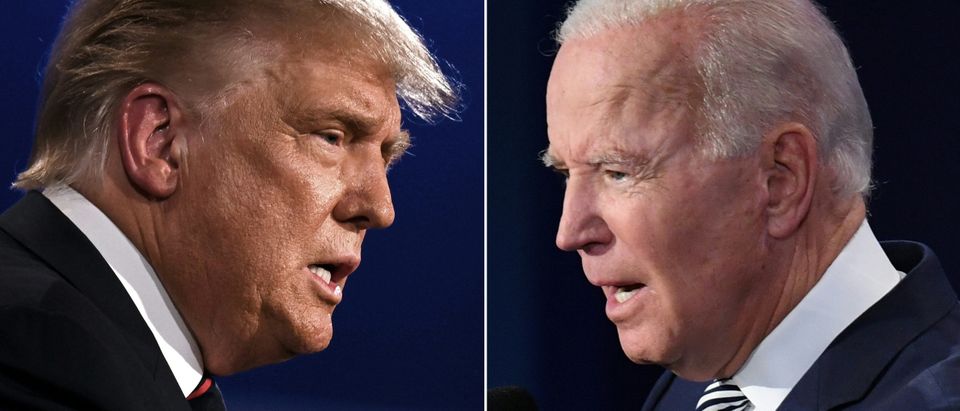- Though unlikely, it is possible that President Donald Trump and Democratic nominee Joe Biden could tie in November’s election, receiving 269 electoral votes each.
- If they tie, the election would head to the House of Representatives, where state delegations would each get a vote in electing the president. The Senate would decide who becomes the vice president, and each senator would get a single vote.
- Voting would take place after the swearing in of the 117th Congress, meaning the fate of either candidate could be contingent on their respective party’s success in November’s congressional elections in the wake of a tie.
While unlikely, some election forecasters have raised the possibility that both President Donald Trump and Democratic presidential nominee Joe Biden could tie in the November, with each having 269 electoral votes instead of one reaching the 270 necessary to win the election.
Though no presidential election has ended in a tie since 1800, when Thomas Jefferson and Aaron Burr each received 73 electoral votes, there are several scenarios that could result in a tie between Biden and Trump, depending on who wins critical swing states like Wisconsin, Michigan and Arizona.
In previous years, a tie could still theoretically be resolved depending on how each state’s electors voted in December. In 2016, seven so-called faithless electors voted against the winner of their respective state, though it did not change the outcome of the election. In July, however, the Supreme Court ruled that state’s electors could not vote against the candidate that their state voted for, forbidding electors in states that did not already have such laws in place to vote for an alternative candidate.
If by some chance Trump and Biden find themselves one electoral vote shy of victory, here’s what would happen.

Melissa Malerman, an election law specialist with the Michigan Secretary of State, gets ballots ready for members of the electoral college to cast their votes at the Michigan State Capitol on December 19, 2016 in Lansing, United States. The electoral college met in the afternoon and voted unanimously for Trump. Electors from all 50 states cast votes today in their respective state capitols. (Sarah Rice/Getty Images)
Congress Intervenes
If neither Biden nor Trump wins 270 electoral votes, the House of Representatives will decide the winner, according to Article II Section 1 of the U.S. Constitution. Though Democrats have the majority in the lower chamber, individual members do not vote to break a tie in a presidential election. Instead, each state delegation gets one vote to be decided upon by its members. A simple majority of House delegations decides the winner, as outlined in Article II.
Technically, House delegations can cast a vote for any candidate that finished in the top three, since no candidate will have received a majority of electoral votes, per Article II.
Though the House decides the president, the Senate would vote to select the vice president, Article II says, creating the possibility that the president and vice president could be of different parties. (RELATED: These Vulnerable Senators Risk Losing Their Seats, Costing The GOP The Majority)
The vote in the event of a presidential election tie would take place on Jan. 6, 2021, three days after the new Congress was sworn in, according to 270 To Win.
Who Would Win?
Despite the Democrats’ House majority, Republicans hold more state delegations, leading 26-23, with Pennsylvania being the only state the parties are tied. Assuming members vote along party lines, Trump would likely have an advantage in the current balance of power in the House.
However, the House elections in November could alter the existing composition. Democrats hope that competitive races in Texas, Montana, Alaska and Georgia could give them a majority of state delegations for the 117th Congress, which would likely result in Biden being voted the winner, forecasters say. (RELATED: Polls Show Close Races In Critical Battlegrounds)

U.S. President Donald Trump and Democratic presidential nominee Joe Biden participate in the first presidential debate moderated by Fox News anchor Chris Wallace (C) at the Health Education Campus of Case Western Reserve University on September 29, 2020 in Cleveland, Ohio. (Scott Olson/Getty Images)
November’s elections could also result in a 25-25 split for each party, forecasters say. If this were to happen, the House would need to keep voting until one candidate won a majority of House delegations, the Constitution outlines. If debates extended past the inauguration date of Jan. 20, Vice President Mike Pence, not Speaker Nancy Pelosi, would become the acting president until the House declared a winner, as per the 20th Amendment, Section 3.
All content created by the Daily Caller News Foundation, an independent and nonpartisan newswire service, is available without charge to any legitimate news publisher that can provide a large audience. All republished articles must include our logo, our reporter’s byline and their DCNF affiliation. For any questions about our guidelines or partnering with us, please contact licensing@dailycallernewsfoundation.org.


